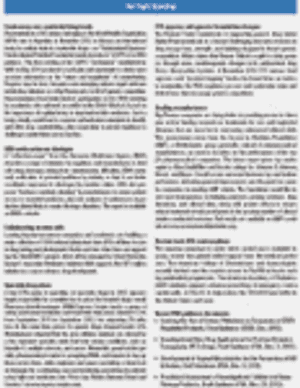
The Trump administration unveiled a new drug price control policy, drawing opposition from pharma manufacturers and pharmacy benefit managers.

Jill Wechsler is BioPharm International's Washington Editor, jillwechsler7@gmail.com.

The Trump administration unveiled a new drug price control policy, drawing opposition from pharma manufacturers and pharmacy benefit managers.

A new FDA guidance provides answers to such questions about when the agency will seek to visit a site during the COVID-19 pandemic and how it will respond when a needed inspection cannot be conducted safely.

Efforts by regulators seek common approaches to clinical research and biopharmaceutical production needed to wipe out the coronavirus pandemic globally.

Patient advocates, research experts, and industry are calling for more user fee revenues to support CBER programs to advance innovative therapies.

Should therapies and vaccines be cheap or free in a pandemic and would that really dry up innovation?

Industry should be seeking more information from FDA on how it will restart its current inspection program.

FDA officials are moving to clarify standards and requirements for vetting and approving viable preventives.

FDA can better monitor quality production of domestic versus foreign firms.

FDA has revoked its Emergency Use Authorization hydroxychloroquine and chloroquine, citing new evidence and reanalysis of earlier data confirming that the drugs show no evidence of effectiveness against the coronavirus and raise continued concerns about cardiovascular safety risks.

Will efforts to limit all returns on investment drive biopharma companies away from developing much-needed interventions for COVID-19.

Despite the clear danger of COVID-19 to global health, vaccine opponents have gained ground, as fearful populations lose faith in the capabilities of industry and government to protect public health.

FDA and the US Congress support innovation and access to cheaper medicines.

The White House looks to bring in credible experts for its Operation Warp Speed initiative to advance therapies and vaccines to combat the coronavirus pandemic.

The Trump Administration has awarded a hefty contract to a new pharmaceutical manufacturing consortium to produce in the United States all components of certain critical medicines needed to combat COVID-19.

Biopharmaceutical companies and federal agencies have been working overtime and assuming considerable risk to be able to supply billions of doses of any safe and effective preventive.

Some observers fear that political interference in the process may erode confidence in the scientific basis for FDA regulatory decisions.

Congressional leaders are developing the next version of the 21st Century Cures Act, including provisions to advance research related to the COVID-19 crisis as part of initiatives for bringing innovative therapies to market faster.

Policy makers seek to ensure supplies of new therapies and to limit shortages.

With hundreds of clinical trials for potential coronavirus therapies in the works concerns have mounted about the emergence of conflicting data, useless results, and wasted efforts from multiple overlapping efforts.

Drug manufacturers, distributors, and dispensers oppose Buy American policies as likely to reduce reliable supplies and raise product costs.

FDA is encouraging alternative insulins and challenging anticompetitive practices.

The bill includes multiple less-noticed provisions to bolster healthcare programs and to advance the development of new treatments and preventives to combat the virus.

FDA officials are rolling out guidance and support for researchers striving to assess potential treatments for COVID-19 while the agency tries to object to premature optimism and regain public credibility.

FDA is offering advice and added flexibility to help sponsors adjust ongoing and planned clinical research programs during the COVID-19 outbreak.

Now officially a worldwide pandemic, the biomedical research community is rushing to develop treatments and preventives to halt the spread and severity of the COVID-19 virus.

States, hospitals, and insurers support manufacturing arrangements to ensure access to affordable medicines.

US and European regulatory officials continue to anticipate supply shortages in multiple areas.

The research community is moving quickly to launch clinical trials of potential countermeasures, while regulatory authorities aim to support product development through regulatory flexibility.

The FDA Commissioner plans to address drug prices, the drug approval process, and supply chain issues during his time as commissioner of FDA.

Increased reliance on foreign producers raises concerns and spurs collaborations.

Published: January 1st 2013 | Updated:

Published: January 15th 2002 | Updated:

Published: February 15th 2002 | Updated:

Published: March 1st 2014 | Updated:

Published: April 1st 2014 | Updated:

Published: February 5th 2014 | Updated: